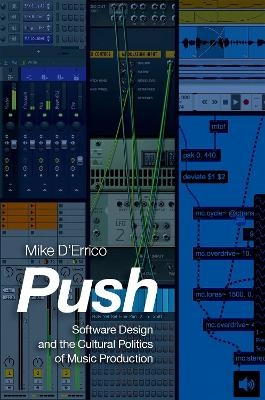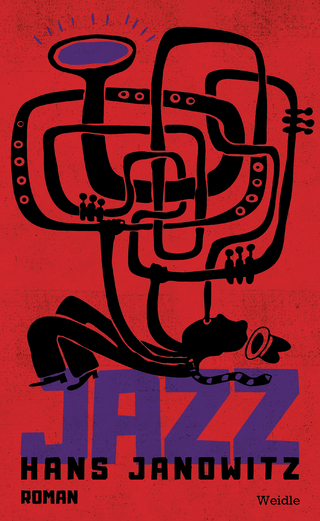
Push
Oxford University Press Inc (Verlag)
978-0-19-094331-8 (ISBN)
Push: Software Design and the Cultural Politics of Music Production shows how changes in the design of music software in the first decades of the twenty-first century shaped the production techniques and performance practices of artists working across media, from hip-hop and electronic dance music to video games and mobile apps. Emerging alongside developments in digital music distribution such as peer-to-peer file sharing and the MP3 format, digital audio workstations like FL Studio and Ableton Live introduced design affordances that encouraged rapid music creation workflows through flashy, "user-friendly" interfaces. Meanwhile, software such as Avid's Pro Tools attempted to protect its status as the "industry standard," "professional" DAW of choice by incorporating design elements from pre-digital music technologies. Other software, like Cycling 74's Max, asserted its alterity to "commercial" DAWs by presenting users with nothing but a blank screen.
These are more than just aesthetic design choices. Push examines the social, cultural, and political values designed into music software, and how those values become embodied by musical communities through production and performance. It reveals ties between the maximalist design of FL Studio, skeuomorphic design in Pro Tools, and gender inequity in the music products industry. It connects the computational thinking required by Max, as well as iZotope's innovations in artificial intelligence, with the cultural politics of Silicon Valley's "design thinking." Finally, it thinks through what happens when software becomes hardware, and users externalize their screens through the use of MIDI controllers, mobile media, and video game controllers. Amidst the perpetual upgrade culture of music technology, Push provides a model for understanding software as a microcosm for the increasing convergence of globalization, neoliberal capitalism, and techno-utopianism that has come to define our digital lives.
Mike D'Errico is Director of Music Technology & Composition, Assistant Professor of Music & Computer Science, and Music Department Chair at Albright College, where he teaches courses in Music Production, Sound Design, Game Design, Songwriting, and User Experience Design. His research has appeared in Music, Sound, and the Moving Image, Journal on the Art of Record Production, and edited collections such as The Oxford Handbook of Electronic Dance Music; Electronic Cities: Music, Policies and Space in the 21st Century; Critical Issues to the Production of Music and Sound; and The Cambridge Companion to Hip-Hop. As an electronic music producer and sound designer, he makes hip-hop beats, electronic dance music tracks, and sound for video games and virtual reality applications. He is an Avid Certified Instructor in Pro Tools for Music and Game Audio, as well as an Apple Certified Pro in Logic Pro X. He earned his PhD in Musicology from UCLA, his Masters in Music from Tufts University, and his Bachelors of Music Education from the University New Hampshire.
Acknowledgements
About the Companion Website
Introduction: Interface Aesthetics
PART ONE: Sonic Architectures
1. Plugin Cultures
2. Monopolies of Competence
3. Terminal Aesthetics
PART TWO: When Hardware Becomes Software
4. Controller Cultures
5. There's an App for That
PART THREE: Software as Gradual Process
6. Worlds of Sound
7. Deep Listening
Conclusion: Invisible Futures
References
Index
| Erscheinungsdatum | 10.01.2022 |
|---|---|
| Zusatzinfo | 115 figures |
| Verlagsort | New York |
| Sprache | englisch |
| Maße | 150 x 226 mm |
| Gewicht | 476 g |
| Themenwelt | Kunst / Musik / Theater ► Musik ► Instrumentenkunde |
| Kunst / Musik / Theater ► Musik ► Pop / Rock | |
| Kunst / Musik / Theater ► Theater / Ballett | |
| Technik | |
| ISBN-10 | 0-19-094331-9 / 0190943319 |
| ISBN-13 | 978-0-19-094331-8 / 9780190943318 |
| Zustand | Neuware |
| Haben Sie eine Frage zum Produkt? |
aus dem Bereich


